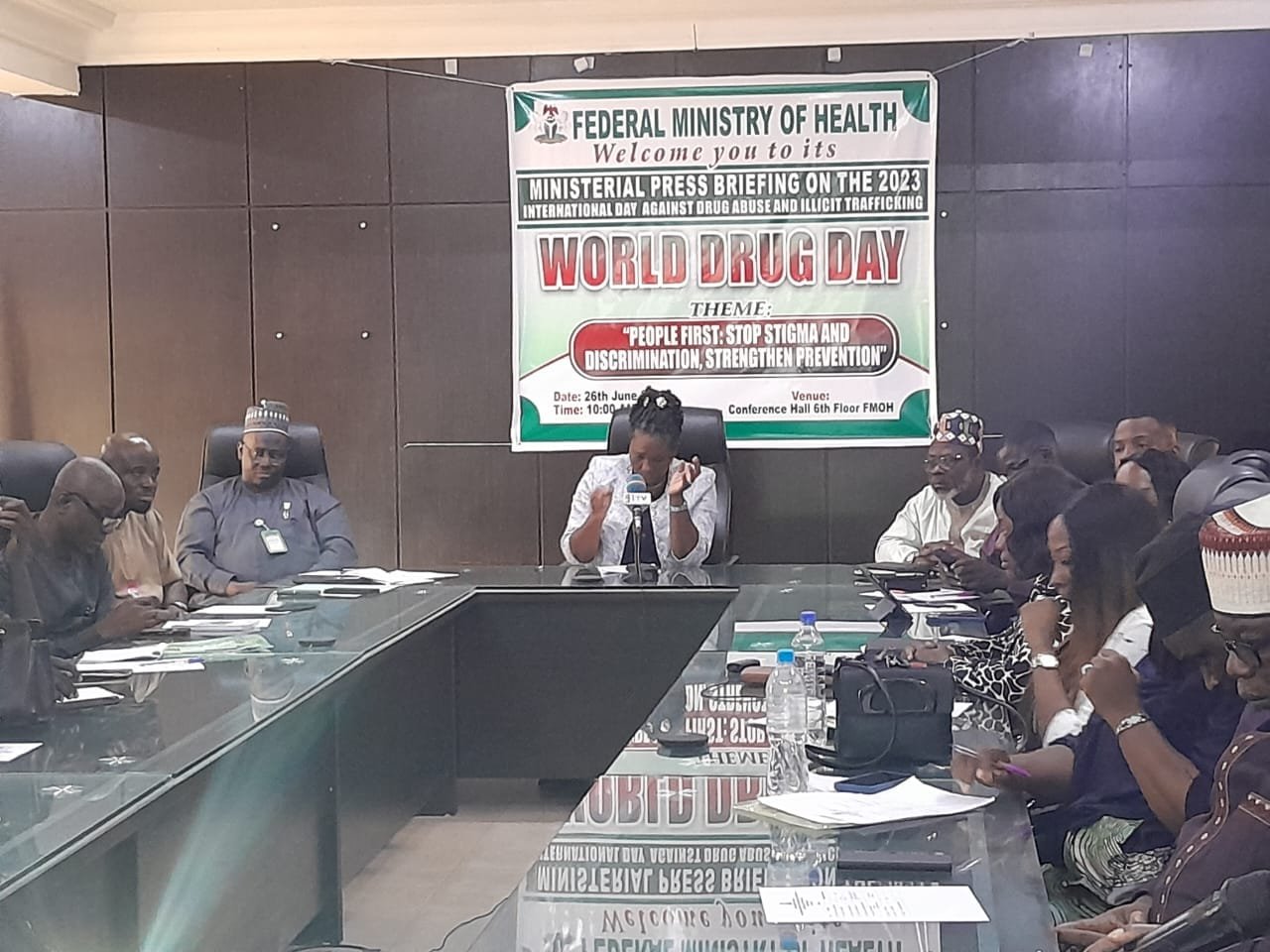By Juliet Jacob Ochenje
Nigeria’s Ministry of Health has lamented the rising rate of drug abuse among Nigerians, adding that it should be treated as an epidemic.
The Permanent Secretary (PS) of the Ministry of Health, Engr. Olufunso Adebiyi, who said this at a press briefing to commemorate the World Drug Day in Abuja on Monday, added that drug trafficking and use are not only a threat to the security, governance and development of a nation, but also to the health of its citizenry.
The World Drug Day which is marked on June 26 of every year seeks to strengthen action and
cooperation in achieving a world free of drug abuse. This year’s World Drug Day theme is ‘People first: stop stigma and
discrimination, strengthen prevention’.
This theme, the PS explained, aims to ‘raise awareness about the importance of treating people who use drugs with respect and empathy; providing evidence-based, voluntary services for all; offering alternatives to punishment; prioritising prevention; and leading with compassion.
He further said the campaign also aims to combat stigma and discrimination against people who use drugs by promoting language and attitudes that are respectful and non-judgmental.’
Adebiyi, citing statistics from the 2018 National Survey on Drug Use and Health, estimated the prevalence of drug use in Nigeria at 14.4%, corresponding to 14.3 million people between the ages of 15 – 64, who used drugs like cannabis, amphetamines, tramadol, codeine, and cocaine.
He said: “This is more than twice the global prevalence of 5.6% among the adult population. The report also estimated 376,000 people to be high risk drug users with 1 in 5 of these persons injecting drugs. This translates to about 80,000 people estimated to be People Who Inject Drugs (PWID) in Nigeria.
“Seventy-eight per cent of those injecting drugs were men and the most common drugs injected were pharmaceutical opioids (such as tramadol, codeine, or morphine), followed by cocaine, heroin, and tranquilizers. It also estimated that among every four drug users in Nigeria, one is a woman; and that 1 in 5 persons who had used drugs in the past year is suffering from drug use disorders.”
“The 2020 World Drug Report by the United Nations Office on Drugs and
Crime (UNODC) disclosed that people who inject drugs are at increased risk of HIV/AIDS,
tuberculosis, and viral hepatitis B and C, in addition to overdose-related deaths. The WHO
also reported in 2015 that psychoactive drug use is responsible for more than 450,000
deaths per year.
“These reports clearly indicate that the menace of drug abuse has reached an epidemic proportion and thus requires concerted efforts by all. Therefore, drug trafficking and use are not only a threat to the security, governance, and development of a nation but also to the health of its citizenry.
“In as much as supply reduction strategies led by law enforcement and the application of criminal sanctions represent significant efforts
towards curbing access to illicit drugs and their non-medical use, there is need to match
such measures with innovative drug demand reduction strategies.
“Consequently, implementation of an all-inclusive and integrated approach with equal attention paid to drug supply and demand reduction is crucial…in line with the spirit of the three UN International Conventions on Drug Control established to protect human health by
preventing drug abuse and dependence and ensuring access to controlled medicines for
medical and scientific purposes only.”
While appreciating all stakeholders who have been working tirelessly to address the issues of drug trafficking and abuse in Nigeria, he emphasised that stigma and discrimination of drug addicts harm their physical and mental health of people and prevent them from accessing the help they need.



